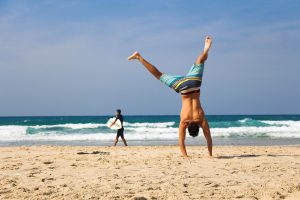
Doing activities on your own besides your homework can provide you with an advantage during your Spanish lessons. It is not just studying, actually, it is a separate thing. After all, studying has an objective and students focus on it. But to properly learn Spanish so it is useful on your daily basis or future endeavors, you need to have some background too. This background comes from taking all your knowledge and filtering it outside your head and your academic environment as well.
The first thing to focus on is that you need to separate studying from practicing. As we just said, studying has turned into a way to pass your exams and fulfill your academic learning time. This is not just studying. Practicing means taking it quite more personally. For instance, it is not the same as studying vocabulary and practicing it. The same applies to any other aspect. When you turn your practice into your way of keeping alive your second language, then you can understand what it means to develop it.
Applying what you know is slightly different from just studying, since it requires previous knowledge and its purpose is also different. It is not learning more, but better. For instance, vocabulary. One of the best things to do in order to use your Spanish is to begin thinking bilingually. If you are capable of turning your day into Spanish as you go doing your stuff, your brain will eventually develop new skills too. Think to yourself in both languages for some days or a week and you will see how different is practicing and studying.
Once you have been training yourself and your brain, you can try and move your new habits outside. Take your time to relax too and why not watching a movie or a series online. Then, focus on your language practicing and change it too. If you are more of an auditive type of person, you could enable Spanish dubbing and try to listen carefully, so you can get for example accents, slang… and you can help yourself a little bit if you turn on subtitles in English. If, on the other hand, you are the type of audience who prefer subtitles over voices, the opposite works perfectly fine too.
By transforming your daily basis and your hobbies and activities into a bilingual kind of project, you will be able to gain experience and fluency too. If you have the chance to also speak Spanish at work or whenever you go outside, that is the last barrier that you will face in order to put your focus into practicing and getting better. Hearing and participating in conversations is the most valuable source of experience when adopting a second language.
We really hope that this article helped you finding a purpose on studying and practicing your Spanish as a second language. Keep in mind that theoretical knowledge, exams and studying is just part of the process. Take a look at our site and courses, so we can develop together the nicest experience!
Author: Alejandro Fayos Benito
Photo by Pixabay
